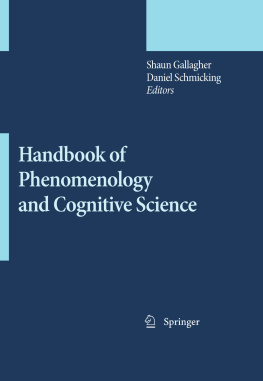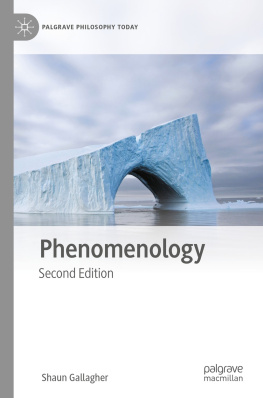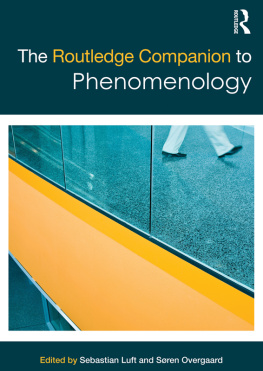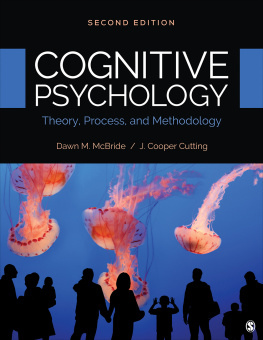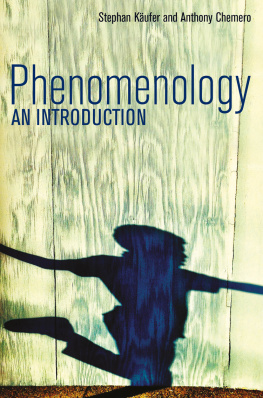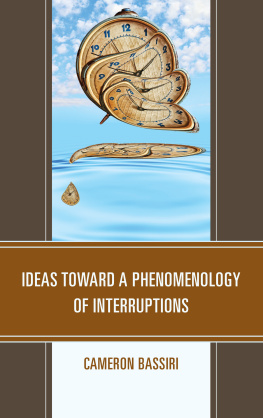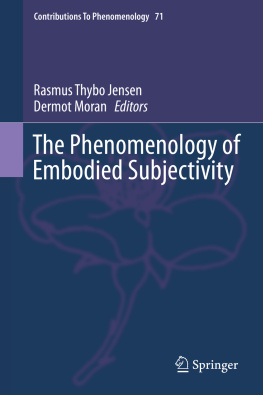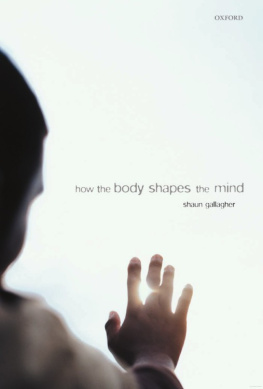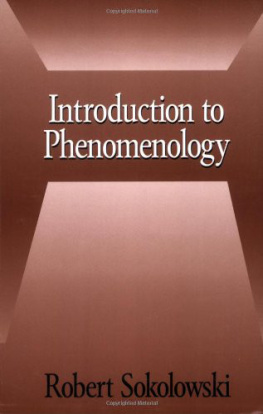Daniel Schmicking and Shaun Gallagher (eds.) Handbook of Phenomenology and Cognitive Science 10.1007/978-90-481-2646-0_1 Springer Science+Business Media B.V. 2010
Abstract
It is always risky to make sweeping statements about the development of philosophy, but if one were nevertheless asked to describe twentieth century philosophy in broad strokes, one noteworthy feature might be the following: Whereas important figures at the beginning of the century, figures such as Frege and Husserl, were very explicit in their rejection of naturalism (both are known for their rejection of the attempt to naturalize the laws of logic, that is, for their criticism of psychologism), the situation has changed considerably. Today many philosophers - not the least within analytical philosophy - would subscribe to some form of naturalism. In fact, naturalism is seen by many as the default metaphysical position. If you dont subscribe to naturalism you must be subscribing to some form of Cartesian substance dualism. Thus, whereas 20 or 30 years ago one might have been inclined to characterize the development of twentieth century philosophy in terms of a linguistic turn, a turn from a philosophy of subjectivity to a philosophy of language, it might today be more apt to describe the development in terms of a turn from anti-naturalism to naturalism.
It is always risky to make sweeping statements about the development of philosophy, but if one were nevertheless asked to describe twentieth century philosophy in broad strokes, one noteworthy feature might be the following: Whereas important figures at the beginning of the century, figures such as Frege and Husserl, were very explicit in their rejection of naturalism (both are known for their rejection of the attempt to naturalize the laws of logic, that is, for their criticism of psychologism), the situation has changed considerably. Today many philosophers - not the least within analytical philosophy - would subscribe to some form of naturalism. In fact, naturalism is seen by many as the default metaphysical position. If you dont subscribe to naturalism you must be subscribing to some form of Cartesian substance dualism. Thus, whereas 20 or 30 years ago one might have been inclined to characterize the development of twentieth century philosophy in terms of a linguistic turn, a turn from a philosophy of subjectivity to a philosophy of language, it might today be more apt to describe the development in terms of a turn from anti-naturalism to naturalism.
What are the implications of this turn? It has some rather decisive metaphilosophical implications, that is, it has implications for the way we view the relation between philosophy and positive science. According to some readings, a commitment to naturalism simply amounts to taking ones departure in what is natural (rather than supernatural), but I think it is fair to say that the use of the term in the current discourse mainly signals an orientation towards natural science. As Sellars famously put it, in the dimension of describing and explaining the world, science is the measure of all things, of what is that it is and of what is not that it is not (Sellars , 173). However, insofar as naturalists would consider the scientific account of reality authoritative, a commitment to naturalism is bound to put pressure on the idea that philosophy (including phenomenology) can make a distinct and autonomous contribution to the study of reality.
A vivid illustration of this tension can be found in the field of consciousness studies. As Francis Crick insists it is hopeless to try to solve the problems of consciousness by general philosophical arguments; what is needed are suggestions for new experiments that might throw light on these problems. (Crick , 258). In short, philosophers are welcome to join the common enterprise, but only as junior partners. Indeed, one suspects that philosophy (of mind) on Cricks view will ultimately turn out to be dispensable. Whatever contribution it can make is propaedeutical and will eventually be replaced by a proper scientific account.
It is doubtful whether all philosophers committed to naturalism would accept this line of thought, but there is no question that naturalism does pose a challenge to philosophy. In the following, my focus will be on phenomenology. How should phenomenology respond to this challenge? What sense can we make of recent proposals to naturalize phenomenology? A correct appraisal is, however, complicated by the fact that naturalism is far from being a univocal position. I will take my point of departure in a rather classical reductionist conception of naturalism, not only because this was the kind of position that Husserl was originally reacting against, but also because it still remains a widespread and influential view. Whether this ultimately amounts to a satisfying conception of naturalism is a question I will return to later.
Husserls Anti-naturalism
To start with, let us briefly recapitulate the character and motivation for Husserls anti-naturalism. In the long essay Philosophy as Rigorous Science , Husserl describes naturalism as a fundamentally flawed philosophy (Husserl , 39).
But why does Husserl oppose the attempt to implement a thorough naturalistic account of consciousness? Because naturalism in his view is incapable of doing full justice to consciousness. Not only has it - in the shape of experimental psychology - lost sight of (subjective) consciousness (Husserl , 104), but even more importantly, naturalism treats consciousness as a real occurrent entity in the world, that is, it conceives of consciousness as an object in the world, on a par with - though possibly more complex than - volcanoes, waterfalls, ice crystals, gold nuggets, rhododendrons or black holes. But on Husserls view this is unacceptable since consciousness rather than merely being an object in the world, is also a subject for the world, that is, a necessary condition of possibility for any entity to appear as an object in the way it does and with the meaning it has. To put it differently, according to Husserl, the decisive limitation of naturalism is that it is incapable of recognizing the transcendental dimension of consciousness.
One way to interpret Kants revolutionary Copernican turn is by seeing it as amounting to the realization that our cognitive apprehension of reality is more than a mere mirroring of a preexisting world. Moreover, Kant transformed the pre-critical search for the most fundamental building blocks of reality into a reflection on what conditions something must satisfy in order to count as real; what is the condition of possibility for the appearance of objects? With various modifications this idea was picked up by Husserl and subsequent phenomenologists. Indeed, the reason why phenomenologists have emphasized the importance of the first-person perspective and investigated the fundamental structures of consciousness and selfhood in great detail has not been because they considered such an investigation a goal in itself - if so, phenomenology would have remained a form of philosophical psychology or philosophical anthropology - rather the analysis was motivated by transcendental philosophical considerations.
Naturalism is typically distinguished by methodological as well as metaphysical commitments. The methodological commitment amounts to the idea that the right criteria for justification are those found in and employed by the natural sciences. The metaphysical commitment amounts to the monistic view that there is only one kind of thing, namely things with natural properties, so that everything existing is natural. Jointly, the two commitments amounts to the view that everything (including everything pertaining to human life, such as consciousness, culture and history) has to be studied by the methods of natural science (cf. Aikin , 48). If we want to know true reality, we should aim at describing the way the world is, independently of all the ways in which it happens to present itself to us human beings, that is, we should aim for a description where all traces of ourselves have been removed. Metaphysical realism assumes that everyday experience combines subjective and objective features and that we can reach an objective picture of what the world is really like by stripping away the subjective. It consequently argues that there is a clear distinction to be drawn between the properties things have in themselves and the properties which are projected by us. Whereas the world of appearance, the world as it is for us in daily life, combines subjective and objective features, science captures the objective world, the world as it is in itself.

